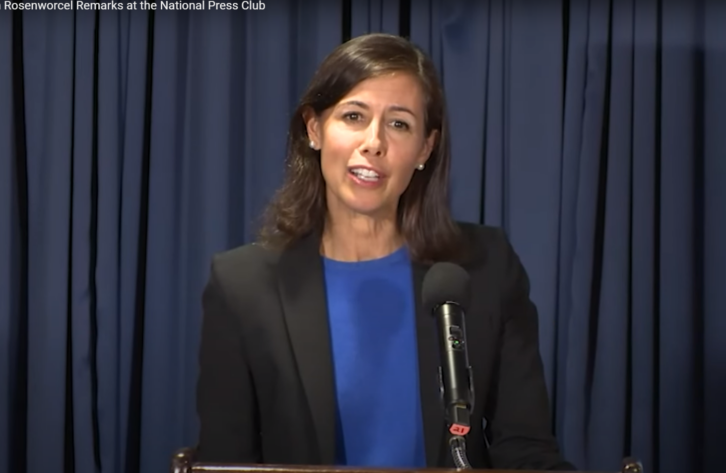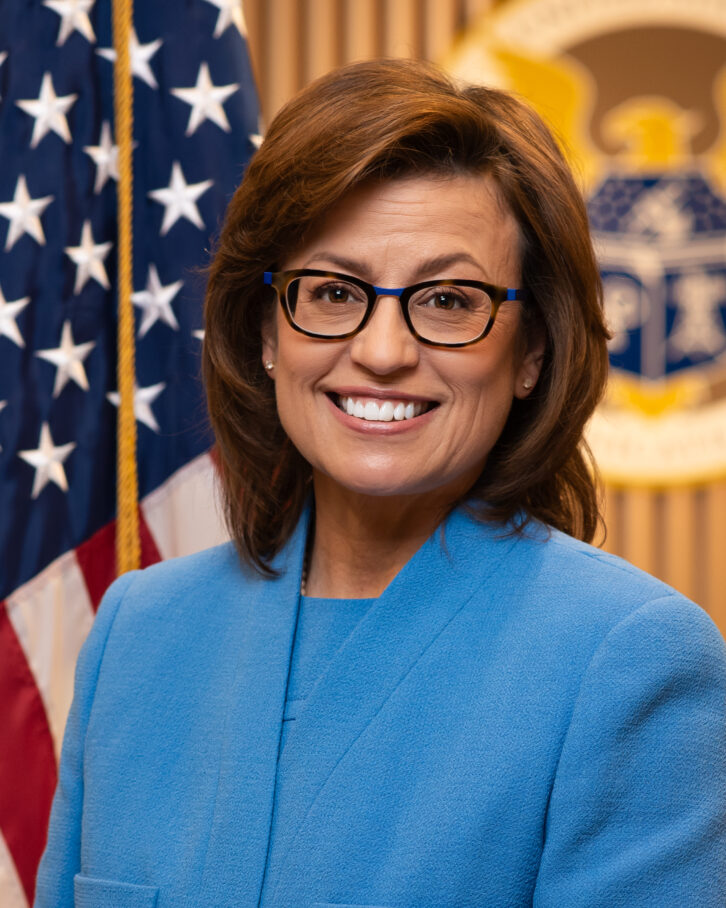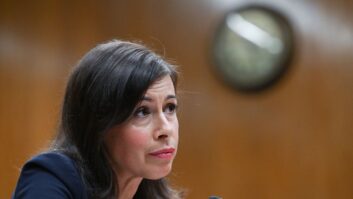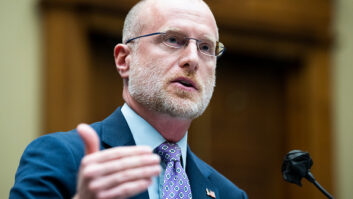Chairwoman Jessica Rosenworcel appears poised to push certain priorities now that the FCC has a Democratic majority. But will the protracted standstill on a number of broadcast matters come to an end?
In October the commission started the process to reestablish the FCC’s oversight over broadband and restore nationwide net neutrality rules. But those who watch the commission closely have many other issues of interest.
National Association of Broadcasters President/CEO Curtis LeGeyt says the FCC must address critical issues facing broadcasters. He laid out the association’s hopes in a recent blog post.
“First, broadcasters desperately need the FCC to modernize broadcast ownership rules dating back decades,” he wrote. Broadcasters need more scale to compete, and that requires further deregulation in his view.
“In today’s world we face competition from pay-TV operators, satellite radio, streaming services and digital platforms operated by tech giants with market caps in the hundreds of billions (if not trillions) of dollars. These competitors have no obligations or incentive to provide the local news, weather, sports, public affairs and emergency information that broadcasters provide for free to the public every day,” LeGeyt said.

“Yet broadcasters alone operate under regulatory constraints that incorrectly presume we compete only with one another for audience and advertising dollars.”
The NAB took the FCC to court last spring over its failure to complete its 2018 quadrennial review of media ownership rules, accusing it of “a perpetual slow roll.” Among other things the NAB favors abolishing caps on AM station ownership and raising those for FM.
In September a federal appeals court gave the FCC 90 days to complete the review or justify why the NAB petition should not be granted.
LeGeyt also hopes the FCC will provide certainty that its merger review process will produce up-or-down votes in a timely fashion. “Unfortunately, opaque and shifting guidelines about broadcaster transactions can deter potential buyers from investing in new and established entrants.”
The Multicultural Media, Telecom & Internet Council cheered Gomez’s Senate confirmation. The organization hopes for action on the push by GeoBroadcast Solutions to allow stations to use FM boosters for geotargeting of very localized programming for a few minutes per hour. MMTC is in favor but the ZoneCasting concept has been opposed by some broadcast companies.
The FCC also may eliminate Channel 6 distance separation rules for noncommercial FMs, LPFMs and FM translators at the lower end of the FM band, according to Washington attorneys. Previously the commission tentatively ruled that this would be feasible once the digital TV conversion ended.
David Oxenford, who practices in legal and regulatory affairs at Wilkinson Barker Knauer, blogged in September about the FCC’s further consideration of expanded Emergency Alert System certification and additional public file obligations.
Pragmatic effect
Melodie Virtue, principal with Foster Garvey PC, told Radio World, “Without a fifth Democratic commissioner, the chair likely advanced items only where she had consensus. That meant that all of the potentially controversial items have been on hold,” including net neutrality.

Does a Democratic majority mean the commission will produce a left-leaning outcome on ownership rules?
“It’s hard to say where they will come down on the competition vs. diversity debate given the changes in the media marketplace,” Virtue said.
“It could be déjà vu all over again, to quote Yogi Berra, with rules adopted during one administration being reversed in the next administration.”
A long-pending issue surrounding EEO demographic reporting will likely be under discussion, Virtue said.
“It could mean additional reporting requirements by bringing back the old grid form 395-B on the makeup of a station’s workforce by gender, race, ethnicity and job category.
“The form has been suspended for 20 years, but the report may come back. And the question raised back then was whether those reports should be made public.”
The practice was put on hold in 2004 when agency lawyers raised constitutionality concerns for quizzing broadcasters about the race and gender of their workers.
Scott Flick, partner at Pillsbury Winthrop Shaw Pittman LLP, said, “The recent history has been that the Republicans have generally focused on how to make broadcasting a more viable competitor to the Googles and Facebooks of the world, whereas Democratic administrations have tended to view broadcasting as a walled garden in which broadcasters compete only among themselves and therefore are largely immune to other market pressures.”
That difference in philosophy often leads Democratic administrations to impose more operating restrictions and reporting expenses on broadcasters, resulting in a more densely regulated environment, Flick said. It can show up in the form of more restrictive ownership rules, annual employment reports, required cybersecurity plans and more enforcement actions.
“Though people tend to focus on the big policy matters, the more pragmatic effect of having five commissioners is likely to be a flurry of significant fines. This is because the FCC’s rules limit the maximum fine that may be issued by, for example, the Media Bureau to $20,000,” he said.
“In cases where there was a 2–2 split among the commissioners on whether a particular fine was appropriate, having a fifth commissioner now opens the door for fines much larger than $20,000. While you would like to think it would be a non-partisan question, that is often not the case.”
But clearly Rosenworcel now has a greater ability to flex her policy muscles and lead a majority vote to push through initiatives.
Frank Montero, co-managing partner at Fletcher, Heald & Hildreth, said, “I agree that it’s entirely possible that she was shelving some of those initiatives because she wanted to wait until she had the three votes to pass them over the two Republican dissenting votes. But I think also important is that this now provides the chairwoman with the opportunity to craft and implement a more lasting legacy for herself through the passage of more-impactful regulatory changes.”






